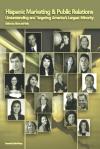Business Spanish Call Center Certification – ROI and the Rationale to Support your Business Case
Posted by Elena del Valle on September 30, 2006
By Tony Malaghan
CEO, Arial International

Tony Malaghan, CEO, Arial International
Photo: Tony Malaghan
In a previous article, Business Spanish Call Center Certification –Improving Customer Satisfaction, I talked about the differences between Hispanic customer care and the general market and how this impacts your call center operation. I also looked at the areas of your operation that need to be addressed in a Business Spanish Call Center Certification program. Typically, as with most business decisions, deciding to certify your call center comes back to ROI. In this article I have attempted to address some common questions raised and the resultant benefits to certification.
Should my call center be certified?
The disadvantage that many call center managers have in a bilingual operation today is that senior managers only speak English. This leaves them at a great disadvantage and at the mercy of vendors such as translation companies, recruiters, etc., and their bilingual staff to manage and gauge the operations’ performance, compliance, and customer satisfaction. It is impossible to effectively manage an operation if you don’t have all the information and the consequences can be very damaging to your brand and customer base.
Going through a “Business Spanish” certification program with an independent subject matter expert in your industry and conducted in-language assures senior management that performance is being measured and standards adhered to, processes are reviewed and brought up to “Best Practice” standards and personnel are tested and only those that qualify will have contact with your Spanish-speaking customers.
What are some of the benefits?
As companies are starting to develop specific strategies to target and acquire US Hispanic consumers, providing outstanding service in Spanish and English to this segment of the market is a fundamental prerequisite to a successful marketing campaign. Those familiar with this segment of the market will be well aware that US Hispanics are a very loyal group and will readily tell family and friends of a good experience they have had with a service provider. So, from a customer acquisition point of view and return on your marketing spend you can begin to see the benefits in dollar terms. Combine this with your retention strategy, remembering that 80% of sales come from 20% of your customer base and that it is five times more profitable to spend marketing and advertising dollars to retain current customers than it is to acquire new customers, then you can begin to see the value and benefit in delivering Best Practice bilingual customer care.
Should I certify my process and/or agents?
Our recommendation is to certify both your personnel and the process. If you’re paying a differential to your bilingual employees, the certification provides an independent, qualified measure for those that are eligible. For those call centers that are not paying bilingual differentials, assessing the language proficiency of your bilingual representatives is equally as important when they are representing your company and brand with your most important asset – your customer.
Certification of your process ensures that an in-depth review of all customer contact points for your operation has been carried out by subject matter experts and meets “Best Practice” bilingual standards. It provides senior management with qualitative and quantitative information and practices to improve operational performance, meaningful measures by which to make managers and supervisors more accountable and the tools necessary to achieve quantifiable improvements in customer satisfaction.
Why should we certify our bilingual agents?
Just because someone says they fluently speak Spanish or can conduct a job interview in Spanish, does not mean they can competently service your customers in a business conversation. Speaking Spanish at home to family and friends about what’s for dinner and what you did today is quite different than discussing contract issues, overcoming objections, explaining a product’s benefits or describing payment terms. We cannot assume that bilingual individuals know and understand the specialized terminology of banking, insurance, mortgage, healthcare or other industries. Just as in English, we must teach these agents how to use accurate vocabulary in the correct context.
Who should be certified?
The bilingual communication skills of new hires and current call center representatives should be assessed to determine who qualifies for the certification process. It is a waste of time and a company’s money to train people who cannot exhibit minimum language competency because they will not be able to correctly apply the information taught in the “Business Spanish” training.
When is the best time to certify call center representatives, as soon as they are hired or after they have had some time on the job?
Seasoned agents and all new hires should be put through the certification process to ensure consistency in your operation. Best-of-class companies screen bilingual job candidates by using verbal communication skills assessments at the time of the interview. The assessment results can be used to determine language proficiency and qualify new hires for the certification process.
How do I sell the benefits of the certification to my agents?
Many companies are paying bilingual premiums to agents who are successfully certified. A higher hourly rate is an excellent motivational tool.
Summary
In summary, undoubtedly, this segment of the U.S. market offers great potential to those companies that are willing to proactively target and offer “Best Practice” service standards. However, providing and achieving quality customer service and customer satisfaction doesn’t just happen. It requires a commitment, senior management buy-in, an adequate budget, fully bilingual staff, and appropriate Spanish language training. Those companies willing to have their operation and personnel audited to “Best Practice” standards will be rewarded by this very loyal market segment.
Arial International, in business since 1992, is a multicultural, multilingual firm that assists companies in targeting and retaining US Hispanic customers. The firm is recognized as the leader in delivering “Business Spanish” services including language assessments, translations, bilingual training, certification programs, consulting projects and E-Learning. The firm has trained over 25,000 professionals in 30 countries with an emphasis in the US and Latin America. © 2006. Arial International.
Tony Malaghan brings over 24 years of professional experience in marketing to Arial International’s management team. He has a Bachelor of Business Studies with a major in Marketing from Massey University. Since joining Arial International in 2001, Tony’s focus has been on Hispanic marketing projects in the US. This article was published with permission from Arial International. For more information visit ArialInternational
Hispanic Marketing and Public Relations book

To purchase a copy of the Hispanic Marketing & Public Relations book featuring “Effective Translations,” a chapter by Tony Malaghan, CEO, Arial International visit the HispanicMPR.com Resoures Section









